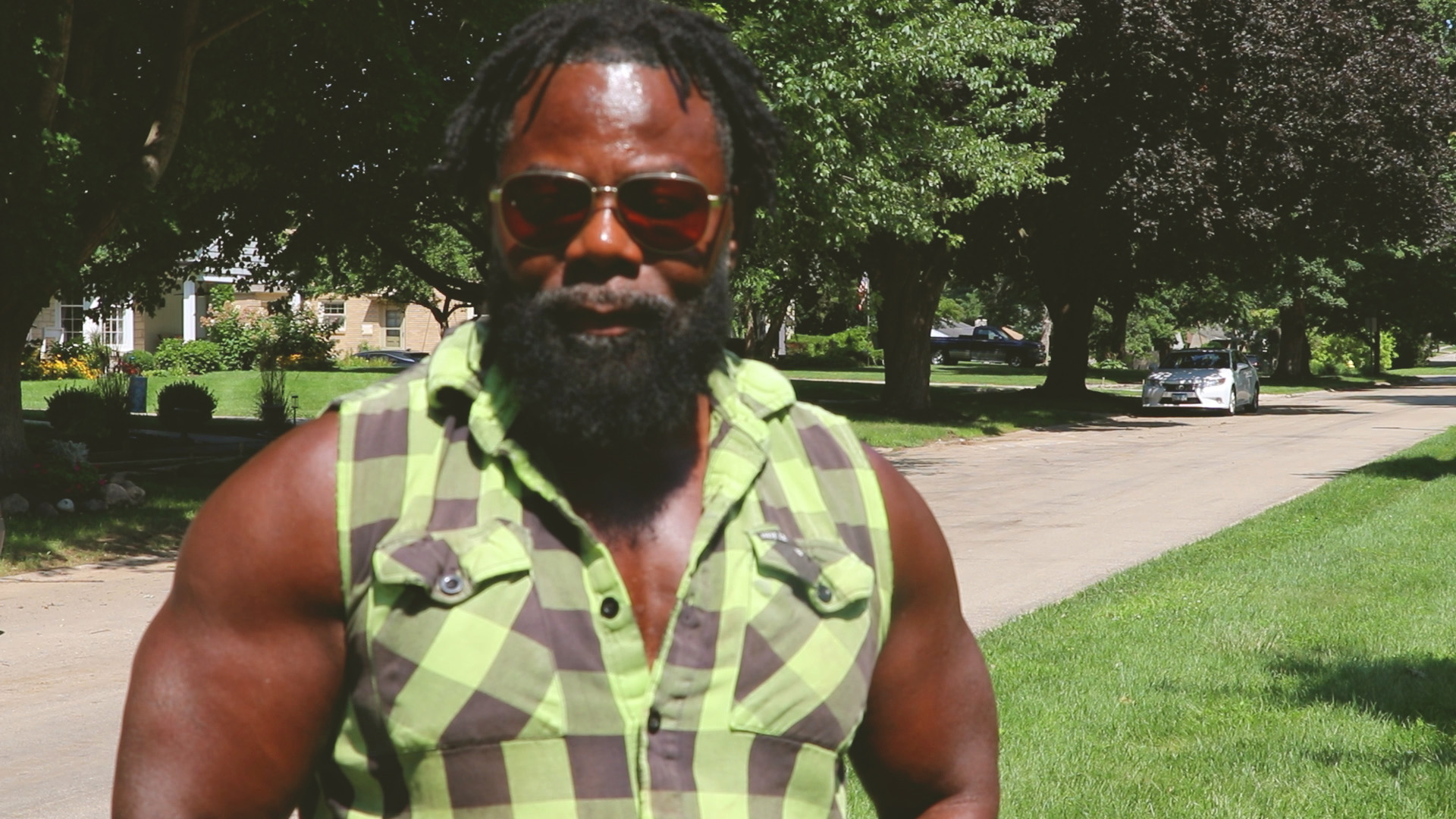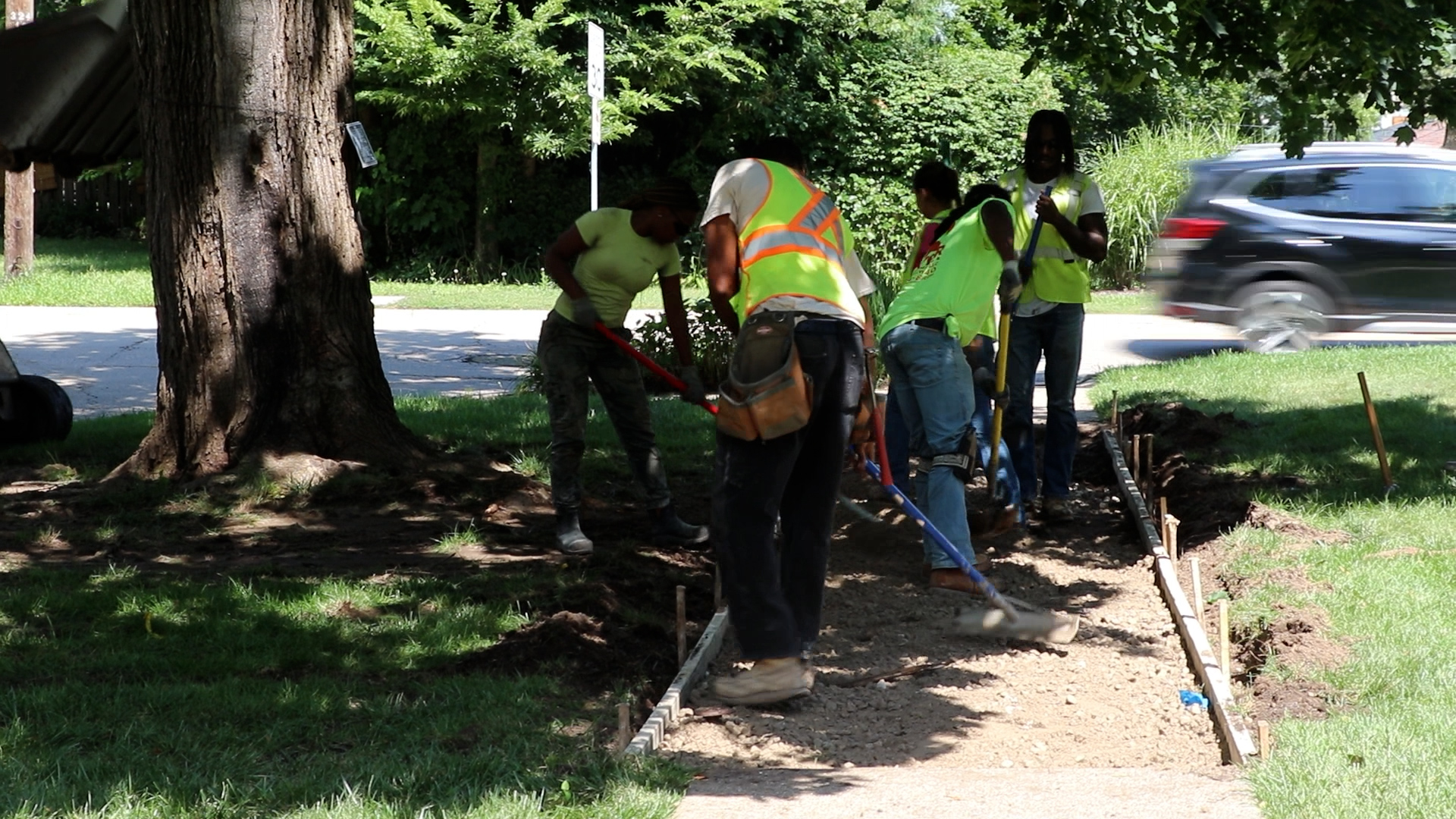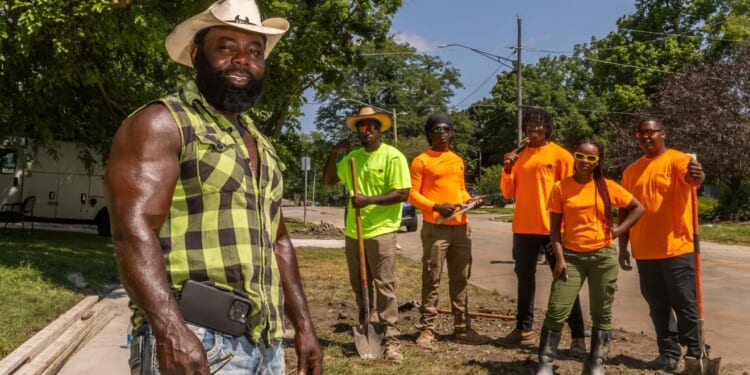Rockford youths often faced a hopeless future, but a program is helping them find a trade as they rebuild their community. It is led by a man who once faced their troubles.
Judging from his youth in Rockford, Illinois, it seemed Albert “Tank” Weathers was destined to be a threat to his community.
“All my life, I’ve been a destroyer,” Weathers said. “When I was in the street gang, I robbed dope houses, got in shootouts and we did what gangsters do. I was kicked out of middle school, didn’t make it to high school. So, my life had been a disaster.”
Then 30 years ago two things saved him: a Christian pastor and a job.

“I was introduced to the concrete business by a gentleman at church. At that moment, I began to build. Psychologically, I didn’t want to tear down anything,” Weathers said.
Within a few years, Weathers was a journeyman concrete mason. Violence was behind him. He quickly turned his new skills into his own business, L T Construction.
It would have been a happy ending had it ended there. It didn’t.
“I was getting ready to move to Texas, but before I went God spoke to me. He said, ‘You’ve got to leave behind a gift for Rockford.’”
When Weathers was growing up, Rockford was one of Illinois’ most troubled cities. In 2013, Forbes called it the third-most “miserable” city in America, citing high unemployment and property taxes. That was without mentioning the failing schools or violent crime.
Weathers realized what he had to do.
“This trade changed my life. I said, ‘Why don’t I give them the same thing? If they’re like me, the same system works for them, too.’”
He went to Mayor Tom McNamara with the idea to take concrete apprentices from the same situation he came from – Rockford’s gangs and broken homes. The city signed a $250,000 contract with him to repair sidewalks for five years.

“Let’s take away the guns and give them a hammer. Let’s take away the bullets and give them some nails. Let’s take away the sagging pants and give them to tool belt around their waist,” he said.
That was in 2021. Four years into the program, Weathers said his move to Texas is delayed indefinitely.
“For the last four years, it has been a change, not just due to the program, but I would say due to hope. Just a glimpse of hope began the change,” he said.
Weathers said his program is hard to replicate, because it’s his shared experience that lets him speak with his young team so effectively.
But the central idea is worth spreading: learn a trade, help build your community and you will find the self-respect and purpose the streets cannot give. Illinois’ leaders could help by broadening Illinois’ apprenticeship opportunities to more industries.
Weathers’ program is part of why Rockford has gone from one of the nation’s most miserable places to one of its hottest housing markets.
“Rockford was a place that nobody wanted to live in, but now people actually want to live here,” he said.
Weathers expects the change to last. He said the next generation is seeing a different way forward.
“If, hypothetically, they see a young Black man working, a young Black woman working, a Latino working, their perception changes,” Weathers said. “They say, ‘Wait a minute, we don’t have to kill. We can build.’”










